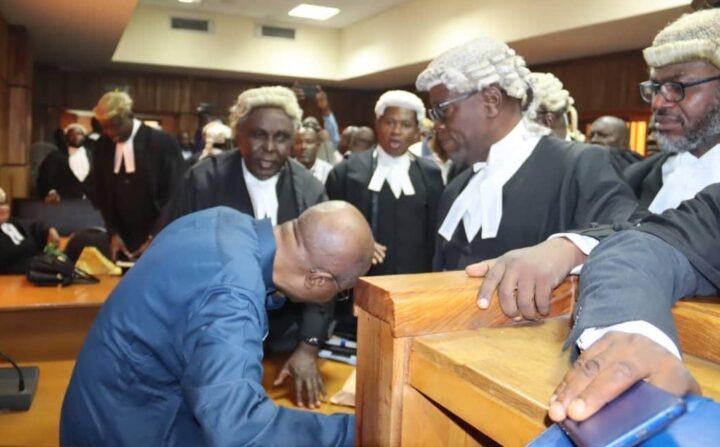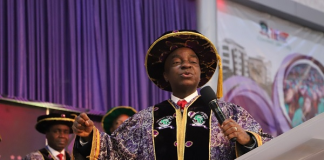🌿 Ruzu Non-Alcoholic Herbal Bitters
Ruzu Non-Alcoholic Herbal Bitters is a natural health supplement specially formulated to:
- ✅ Promote general wellness
- ✅ Detoxify the body
- ✅ Support the treatment of various ailments
Made from a powerful blend of 100% organic and medicinal herbs, Ruzu is completely alcohol-free, making it ideal for:
- 👪 All age groups
- 🌱 Health-conscious individuals
- 🌿 Anyone seeking non-alcoholic herbal remedies
Whether you're looking to boost your vitality, cleanse your system, or support healing the natural way, Ruzu Bitters offers a trusted herbal solution.
The former governor of the Central Bank of Nigeria, Godwin Emefiele, is accused of accepting gratification, making corrupt demands, and collecting property that was gained fraudulently. The Lagos State Special Offenses Court in Ikeja has taken up the case.
Based on a number of facts presented in the evidence attached to the case file, Justice Rahman Oshodi’s ruling on Wednesday concluded that the Economic and Financial Crimes Commission (EFCC), the prosecution, had successfully established that the court had territorial jurisdiction to consider counts 8 through 20 of the 26-count charge brought against the former CBN Governor.
However, because counts 1 through 4 of the charge are not supported by any current Nigerian laws, the court agreed with the Emefiele’s attorneys that they are unconstitutional.
Read Also: NSCDC Nabs 10 Individuals for Suspected Vandalism and Rape in Bauchi
Emefiele was charged by the EFCC on April 8, 2024, on a 26-count indictment that included alleged abuse of office and illegal allocation of N2.8 billion and $4.5 billion, respectively.
Specifically, the former CBN Governor was mentioned in counts 1 through 4 as well as counts 8 through 26 that dealt with alleged abuse of office, which is against and punishable under Section 73 of the Criminal Law of Lagos 2011; accepting gratification, which is against and punishable under Section 8 of the Corrupt Practices and Other Related Offences Act 2000; making a corrupt demand, which is against and punishable under Section 10 of the Corrupt Practices and Other Related Offences Act 2000; receiving property that was obtained fraudulently, which is against and punishable under Section 328 of the Criminal Law of Lagos 2011; and providing corrupt advantage, which is against Section 19 of the Corrupt Practices and Other Related Offenses Act 2000.
on his decision, Justice Oshodi pointed out that although charges 1 through 4 pertain to the criminal code’s definition of the general offense of abuse of authority, the specific behavior that is charged on those counts—namely, the distribution of foreign currency without a bid—is not illegal under any written statute. As a result, the court rejected these counts.
Using recognized legal principles, the judge emphasized that the evidence submitted was adequate to support the court’s territorial jurisdiction with regard to counts 8 to 26.
However, Justice Oshodi explained that this decision does not address the substance of the accusations against Emefiele; rather, it only addresses the jurisdictional argument.
Later, Justice Rahman Oshodi declared that the prosecution had proven a strong enough territorial connection to force Emefiele to respond to the allegations, dismissing the challenge contesting the court’s territorial jurisdiction over counts 8 to 26.
The trial has been postponed to February 24 and 26 by the court.
















